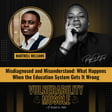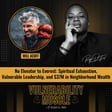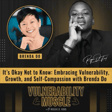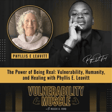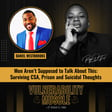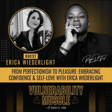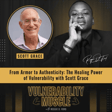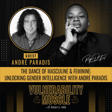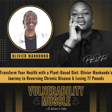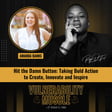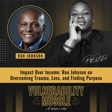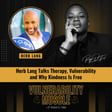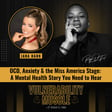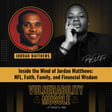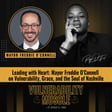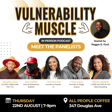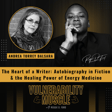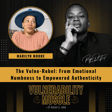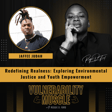
021 - Healing Through Shared Experiences: Unpacking Trauma, Healing, and Growth with Kathleen Rowley
Join Reggie D. Ford and guest Kathleen Rowley on a profound exploration of their transformative experiences at Onsite, a retreat focused on trauma and grief. Delving into their personal journeys, they highlight the power of shared experiences, preparation, and therapy in navigating deep-seated wounds. From psychodrama to EMDR therapy, they uncover the importance of emotional exploration and body awareness in achieving healing and emotional safety. Kathleen candidly discusses their struggles with codependency and the impact on relationships, emphasizing the need for growth and self-awareness. Together, they reflect on their healing journeys, finding solace in vulnerability and connection.
Highlights:
⭐️ Kathleen reminisces about childhood memories and the fulfillment found in nature.
⭐️ Reggie shares their life-changing experience at Onsite, despite initial uncertainty. ⭐️ Kathleen’s persistence leads to a scholarship for an Onsite retreat, marking a pivotal moment in their healing journey.
⭐️ Exploring the transformative power of psychodrama in trauma exploration and role-playing.
⭐️ Reggie finds empathy and understanding through psychodrama, breaking down barriers and fostering connection.
⭐️ Reflecting on the importance of understanding the past to move forward, Kathleen acknowledges personal growth.
⭐️ Reggie finds solace in EMDR therapy for processing childhood trauma and codependency.
⭐️ Kathleen bravely confronts codependency tendencies and struggles with feeling safe in relationships.
⭐️ Embracing body awareness and reframing the body as wise for better self-care and boundary setting.
⭐️ Kathleen shares their journey of healing from abuse and codependency within the evangelical church, navigating shame and spiritual development.
⭐️ Reggie finds peace and appreciation in sensory experiences in nature, advocating for presence and mindfulness.
⭐️ Kathleen expresses gratitude for supportive relationships and their superpower of empathy through vulnerability.
📲 Connect with Reggie
Instagram - https://instagram.com/reggiedford
Facebook - https://facebook.com/reggiedford
LinkedIn - https://linkedin.com/in/reggiedford
Twitter - https://twitter.com/reggiedford
YouTube - https://youtube.com/@reggiedford
Website -https://reggiedford.com/
Book - https://amzn.to/487OqJD
Podcast - https://reggiedford.com/vulnerabilitymuscle
Podcast’s Instagram - https://instagram.com/vulnerabilitymuscle
📲Connect with Kathleen
FB - https://www.facebook.com/kathleen.rowley.505
IG - https://www.instagram.com/kathleenmrowley/
